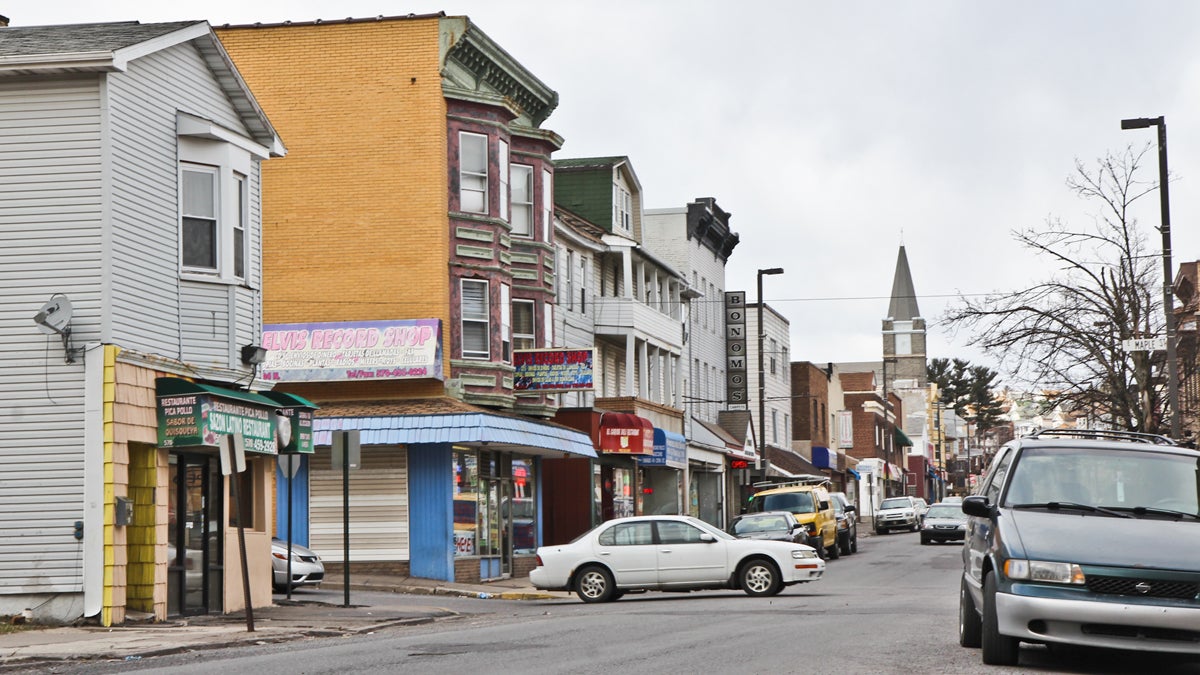U.S. Supreme Court turns down Hazleton on laws aimed at immigrants

Wyoming Street in Hazelton, Pa. was once nearly vacant but since a wave of immigration, almost 90% of storefronts are filled. (Kimberly Paynter/WHYY, file)
After eight years, the legal battle over the City of Hazleton’s ordinances targeting immigrants in the country illegally has ended.
The Supreme Court declined Monday to hear Hazleton’s appeal to reinstate local laws aimed at punishing landlords or employers of people unable to prove their lawful immigration status.
The depressed mining town in northeast Pennsylvania had a growing Latino community when it introduced the ordinances in the mid-2000s. It did so with help from a nationally known advocate for tougher immigration policy.
Attorney Kris Kobach went on to craft and defend Arizona’s controversial law giving immigration enforcement responsibilities to local law enforcement; that law as partially struck down and partially upheld by the Supreme Court in 2012.
“One of the great ironies of this is Hazleton really was the city that led the charge on this,” Kobach said, explaining that Hazleton was the model for local immigration ordinances enacted around the country in the following years.
Foster Maer, an attorney for Latino Justice PRLDEF, which fought the Hazleton ordinances in the courts alongside the ACLU, said he hopes the end of the case sends a message to other towns to “stay out of the immigration business.”
“Let’s focus on the issues that are really important to America’s communities and not try to blame the newcomers for everything that’s wrong, which is what we think Mr. Kobach has been engendering by his litigation,” Maer said.
Kobach, who has represented Hazleton for the duration of the legal battle, argues that federal appeals courts are split on the constitutionality of local laws similar to Hazleton. An ordinance upheld by the 8th U.S. Circuit Court of Appeals was close enough, he said, as to be nearly identical. His opponents disagree.
The former mayor of Hazleton who championed the ordinances is now a federal lawmaker. U.S. Rep. Lou Barletta acknowledged Monday that “this will be the end of the road for the City of Hazleton to pursue this but I am in Congress and will fight even harder.”
As mayor, Barletta created the Hazleton Legal Defense Fund, which raised more than half a million dollars in donations to pay for the city’s legal fees.
After eight years of filings and counter-filings, he said he is still convinced local and federal government must collaborate on immigration enforcement.
“I am going to lead the charge in Congress,” he said, “to see that we can pass laws that will give municipalities and states that authority.”
Barletta supports a bill in the House called the SAFE Act to give local law enforcement the ability to charge and arrest people for overstaying visas and immigration offenses.
WHYY is your source for fact-based, in-depth journalism and information. As a nonprofit organization, we rely on financial support from readers like you. Please give today.

